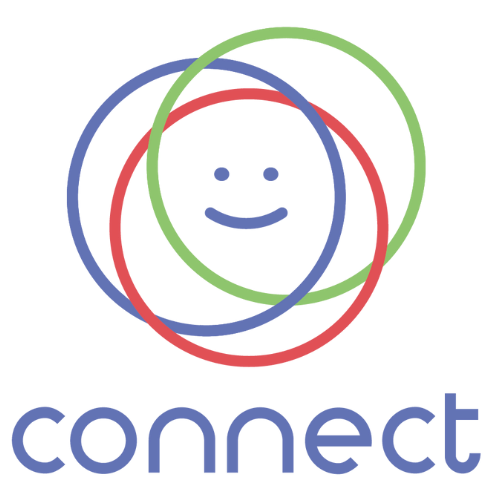Substance Use Disorder Therapy
Attention Deficit Hyperactivity Disorder (ADHD) can affect children, adolescents, and adults, causing difficulties with focus, organization, and impulse control. At Connect Counseling Center, we offer specialized ADHD Therapy for individuals in Mount Juliet, Clarksville, and Cookeville, providing tools and strategies to manage symptoms and improve daily functioning.

What is a Substance Use Disorder?
A Substance Use Disorder (SUD) is a chronic condition where the use of drugs or alcohol becomes compulsive, leading to significant harm in one’s life. Addiction affects not only physical health but also emotional well-being, relationships, and work or school performance. A person struggling with SUD may find it difficult to stop using the substance, even when it’s causing negative consequences. It is a disease that often requires professional help to overcome.
Commonly abused substances include:
- Alcohol
- Prescription drugs (e.g., opioids, benzodiazepines)
- Marijuana
- Cocaine
- Methamphetamine
- Heroin
Recognizing the signs of substance abuse and seeking help early can prevent long-term damage and support recovery.
Signs and Symptoms of Substance Use Disorder
The signs of substance use disorder can vary depending on the individual and the substance being used, but common symptoms include:
Increased tolerance: Needing more of the substance to achieve the same effect.
Withdrawal symptoms: Experiencing physical or emotional distress when not using the substance.
Loss of control: Difficulty limiting or stopping substance use.
Neglecting responsibilities: Failing to meet work, school, or family obligations due to substance use.
Relationship problems: Conflict with family, friends, or coworkers due to substance use.
Risky behaviors: Engaging in dangerous activities, such as driving under the influence.
Continued use despite negative consequences: Using the substance even when it’s causing physical, emotional, or social harm.
If these symptoms sound familiar, reaching out for professional support can be the first step toward recovery.
The Benefits of Substance Use Disorder Therapy
Substance use disorder therapy offers numerous benefits for individuals seeking to overcome addiction:
Improved Mental and Physical Health: Therapy helps individuals reduce or eliminate substance use, improving both mental clarity and physical well-being.
Enhanced Coping Skills: Clients learn healthier ways to manage stress, cravings, and emotional triggers without turning to drugs or alcohol.
Stronger Relationships: Therapy can help rebuild trust and improve communication with loved ones, allowing individuals to repair strained relationships.
Increased Self-Esteem: As clients gain control over their substance use, they often experience a renewed sense of self-worth and confidence.
Long-Term Sobriety: With the right support, individuals can develop the skills needed to maintain long-term recovery and prevent relapse.
How Substance Use Disorder Therapy Works
Therapy for substance use disorder focuses on addressing the root causes of addiction, managing cravings, and developing healthier coping strategies. At Connect Counseling Center, our approach is tailored to meet each individual’s needs and is grounded in evidence-based therapies that have been proven to help people achieve and maintain sobriety.
1. Cognitive Behavioral Therapy (CBT)
CBT is a widely used approach in substance use treatment. It helps individuals identify and change negative thought patterns and behaviors that contribute to their addiction. CBT also teaches coping strategies for managing cravings and avoiding relapse by challenging triggers and automatic responses to stress or negative emotions.
2. Motivational Interviewing (MI)
MI is a client-centered therapy that focuses on helping individuals find internal motivation to change. This approach is especially effective for people who may feel ambivalent about giving up substances. In MI sessions, the therapist works with the client to explore their reasons for change, build confidence in their ability to quit, and create a plan for recovery.
3. Contingency Management
This behavioral therapy approach involves using positive reinforcement to encourage sobriety. Clients receive rewards for meeting treatment goals, such as maintaining sobriety, attending therapy sessions, or completing milestones in their recovery plan.
4. Dialectical Behavior Therapy (DBT)
For individuals who struggle with emotional regulation or co-occurring mental health disorders, DBT can be a valuable tool in substance use disorder treatment. DBT teaches emotional regulation, mindfulness, and distress tolerance, helping clients better manage their emotions without turning to substances.
5. 12-Step Programs and Support Groups
Therapy often includes integrating individuals into 12-step programs or other peer support groups, such as Alcoholics Anonymous (AA) or Narcotics Anonymous (NA). These groups provide a supportive community of individuals who understand the challenges of addiction and offer accountability and encouragement throughout recovery.
6. Family Therapy
Substance use disorders often impact not just the individual but the entire family. Family therapy can help repair relationships, improve communication, and provide support to both the individual in recovery and their loved ones. Involving family members in treatment can also help them understand addiction and learn how to support their loved one’s journey to sobriety.

Substance Use Disorder Therapy at Connect Counseling Center
At Connect Counseling Center, we understand that recovery from substance use disorder is a deeply personal journey. Our therapists are trained in the latest evidence-based practices for treating addiction and offer a compassionate, non-judgmental space for individuals to work through the challenges of substance use. Whether you’re struggling with alcohol, drugs, or prescription medication, our personalized treatment plans are designed to help you achieve long-lasting recovery.
We offer in-person therapy at our locations in Mount Juliet, Clarksville, and Cookeville, as well as teletherapy options for those seeking flexibility.
Take the First Step Toward Recovery
Recovery from substance use disorder is possible, and you don’t have to do it alone. If you’re ready to take the first step toward a healthier, substance-free life, contact Connect Counseling Center today to schedule an appointment. Our caring therapists are here to support you every step of the way.
